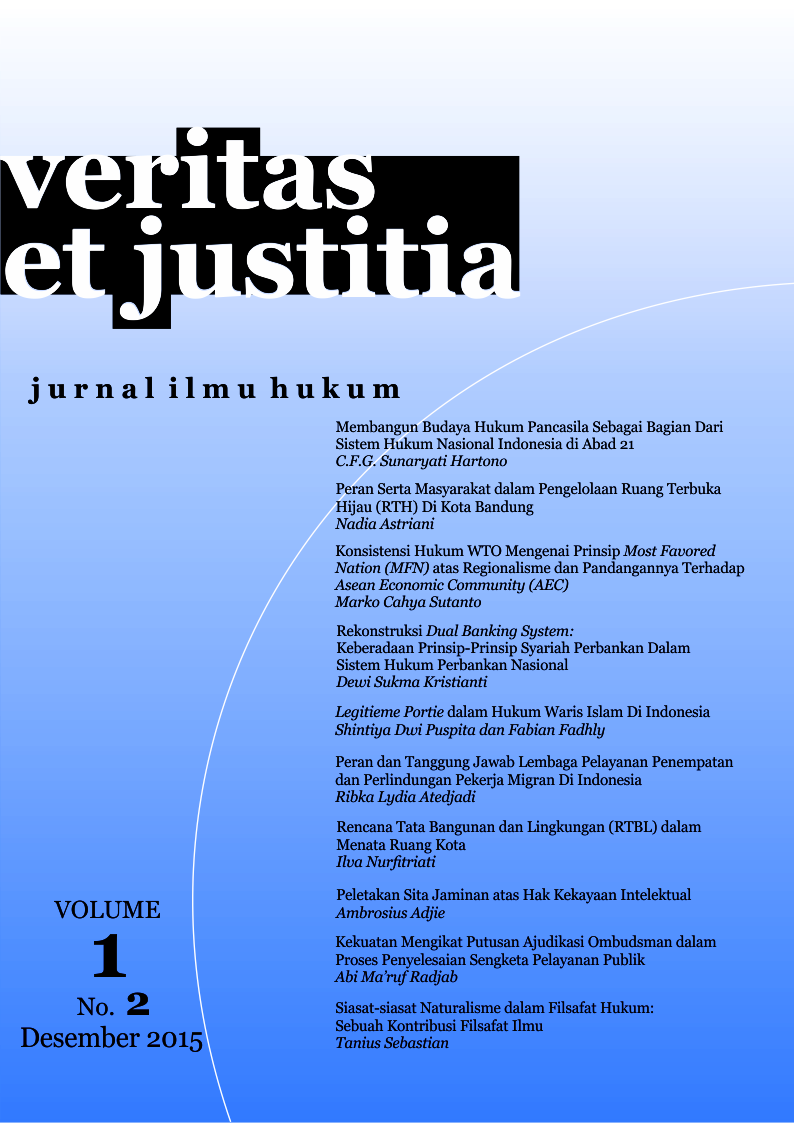KONSISTENSI HUKUM WORLD TRADE ORGANIZATION (WTO) MENGENAI PRINSIP MOST FAVORED NATION (MFN) ATAS REGIONALISME DAN PANDANGANNYA TERHADAP ASEAN ECONOMIC COMMUNITY (AEC)
DOI:
https://doi.org/10.25123/vej.v1i2.1690Abstract
In 2015, Indonesia and other ASEAN members have a commitment to establish a single market region, i.e. free flow of goods and service, termed ASEAN Economic Community (hereinafter ‘AEC’). This arrangement is contrary to Most Favored Nation (MFN) principle under the General Agreement on Tariffs and Trade 1994, (hereinafter ‘GATT’). This paper aims to address the said violation according to the WTO/GATT law by analyzing (1) the general obligations and exceptions under the WTO/GATT, (2) regionalism in general and its existence in Southeast Asia, and (3) the interpretation of WTO’s compromise to regionalism. Under the GATT, there is a general obligation for members to treat their trading partners equally and give the same benefits to other members. However, there is an exception to this principle under article XXIV of the GATT, which based on the notion that regional trade agreements are a building block for multilateral openness. Yet, before applying this exception to the case at hand, AEC’s form must be determined. AEC’ has a structure of Free-Trade Area (hereinafter ‘FTA’) with a single market adhere to it, which according to WTO’s database there is one in force at the moment, namely ASEAN Free Trade Area (hereinafter ‘AFTA’). AFTA is not the equivalent to AEC because it covers more than just goods. Thus, the answer to apply the exception to AEC is inconclusive because even though it fits normatively, it does not have the necessary legitimacy.Downloads
Published
Issue
Section
License
Authors who publish with this journal agree to the following terms:
Authors retain copyright and grant the journal right of first publication with the work simultaneously licensed under a Creative Commons Attribution License that allows others to share the work with an acknowledgement of the work's authorship and initial publication in this journal.
Authors are able to enter into separate, additional contractual arrangements for the non-exclusive distribution of the journal's published version of the work (e.g., post it to an institutional repository or publish it in a book), with an acknowledgement of its initial publication in this journal.
Authors are permitted and encouraged to post their work online (e.g., in institutional repositories or on their website) prior to and during the submission process, as it can lead to productive exchanges, as well as earlier and greater citation of published work.
The Journal allow the author(s) to hold the copyright and to retian publishing rights without restrictions.






